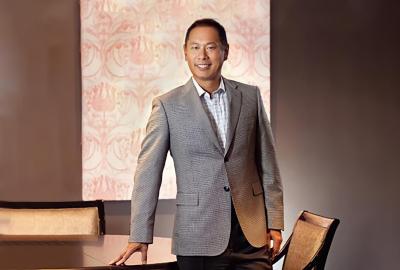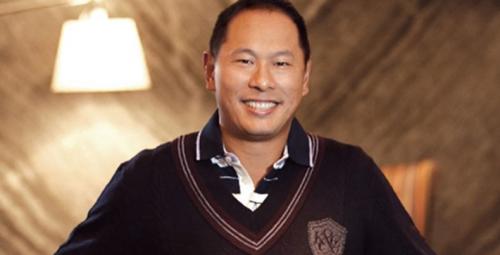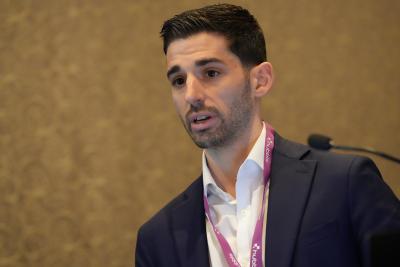Carret Private’s Kenny Ho Surveys the New World of Wealth Management

Kenny Ho of Carret Private Capital
Jul 16, 2020
In late September last year, Hong Kong independent wealth management firm Carret Private Investments and Singapore’s Lumen Capital Investors announced the finalisation of an agreement to merge, as part of a strategy to accelerate business growth in the fast-growing multi-family office segment in Asia. Little did they imagine that only a few months later, the world would be in the grips of such an insidious virus and the resultant economic and social turmoil of lockdown. For the time being, the idea from the outset was for the two firms to continue to operate independently in their respective markets, but the combined entities now boast more prominence – with over USD2.8 billion in assets under management - and have been working through the many business development and efficiencies they can achieve together. Hubbis caught up with Kenny Ho, Managing Partner and Founder in 2016 of Carret Private, who for some time has had to put off his convivial weekend game of golf at Hong Kong’s plush Discovery Bay course with colleagues, business partners and clients. Speaking from his Hong Kong home office, Ho updated us on how he and colleagues have been coping with the lockdown, and what the pandemic means for the firm’s future.
Ho opens by offering some background on the Lumen deal, explaining that the merger was designed to encompass several areas, including portfolio management, research, business development and operational optimisation, with the two firms deciding that the sum of their parts would create a greater whole to help both expand in the future.
“North Asian clients are increasingly looking for investment and custodial solutions in Southeast Asia,” Ho explains. “We believe that given its strategic positioning in Singapore, Lumen is perfectly situated to enhance Carret Private’s overall value proposition. Additionally, Carret Private and LCI have a complimentary range of investment solutions.”
Lumen’s established offering
Wilfried Kofmehl, Founding Partner of Lumen, commented at the time the merger of the two firms would help Lumen to continue the strong growth achieved over the last decade. He remarked that he had known Kenny Ho for over 13 years, since when they were both founding members and executive board members in establishing Bank Julius Baer’s presence in Asia.
Kofmehl left Julius Baer in 2010, having been the Chief Executive Officer of the bank’s Singapore operation, then founding Lumen to provide independent wealth management, investment and advisory services amidst the fast-changing landscape in the private banking industry.
Carret’s careful expansion
Ho left Bank Julius Baer in 2016, partnering with Carret in the US to create Carret Private Capital in Hong Kong as a multi-family office asset manager focused on wealth management, principal investments and corporate advisory.
Ho today works closely alongside his two fellow founding partners, JD Lee and Paolo Picazo, as well as five other senior partners. Indicative of the type of senior-level hires the firm has been seeking out for its expansion, Carret in recent years managed to hire well-known veteran bankers in the form of Mauricio Ribeiro and Changick Kim as partners.
Prior to joining Carret, Ribeiro was a Managing Director, as well as Head of the International and Independent Portfolio Management Service Desk at EFG Bank Hong Kong. And Kim also joined from EFG, where he had focused on managing portfolios for high net worth individuals from Europe, the Middle East and Asia. Additionally, the firm had hired Sam Chee from BNP Paribas in 2017.
Other arms of Carret Private today include Arocrest Capital Management, which provides investment and management expertise to Arocrest Company, a Hong Kong-based company focused on private equity investments in mid-market growth and family businesses. Target sectors include consumer products, financial services, agribusiness, and natural resources. Geographically, Arocrest focuses on emerging markets in Southeast Asia, such as the Philippines, Indonesia, Thailand, Vietnam, Sri Lanka, and Myanmar.
Another arm is SBI Carret, a fintech joint venture company between Carret Private Investments and SBI Hong Kong Holdings. The Carret website also highlights Timbercreek Asset Management, a Canadian real estate fund manager, that aims to be a leading investment house for real estate exposure with its global experience and local presence.
Carret’s key characteristics
Ho first reminds us of some of the key characteristics of Carret and how it differentiates itself from the competition. He reports how the firm’s focus is on competing with the private banks and other EAMs and IAMs and that the focus is entirely on HNW clients and ensuring that they receive optimal services, solutions and absolute objectivity and integrity.
In terms of the current suite of Carret offerings, Ho explains that Carret focuses on particular niches where it can best compete and where its activities best suit its clientele. The firm seeks out a lot of opportunities in the middle-market, deals that are generally below the radar of the big private banks, but which offer appealing returns and low risk.
“Studies have shown that the smaller alternative asset managers tend to have better performance,” he comments. “It is harder to put your money to work once you are in the multi-billions of dollars deal ranges, whereas we can target smaller deals that are easier to conclude and offer higher returns.”
Best-in-class
He reports that the core USP of Carret Private from the outset has been the ability to manage multi-asset class portfolios for its wealth management clientele, but what differentiates it has been its ability to source and find interesting outstanding investment products in an alternative space which private banks do not typically source.
Another key USP, Ho explains, is that the firm does not itself offer custody, but operates for its clients with a selection of top-flight custodians, selecting the best of breed and farming this function out to different banks, often on a multi-custodian basis from amongst the 13 different private banks and ‘pure’ custodians, such as State Street, BNY Mellon, Pershing, and others, the firm traditionally works with.
A neat fit
“The merger with Lumen fits ideally with our character, our USPs and our mission,” Ho reports. “The merger has, for example, helped with our hiring of top people and strategically we have really strengthened since the merger, with our North Asia clients now having full access to the Singapore platform, especially valuable at times of uncertainty, of course.”
“Moreover, the combined entity is now more robustly positioned to look at add-on acquisitions, and we are already talking to some people. As you know, growing by RM hiring is still difficult; actually, we have succeeded in three key hires in the past six months or so, but particularly in times of duress such as the pandemic, people will prefer to stay in their nice big corporate bank umbrellas.”
Adding further insight, he explains that clients in North Asia have for some time been focusing more on Singapore as a hub, but the pandemic and the social unrest in Hong Kong have both accelerated this drive. “But we also know that Hong Kong is our base, that there is huge growth coming out of China, and this is still the key regional financial centre, so we are happy to be here.”
Growing from the centre
For example, Ho reports that some of the largest Chinese companies are either de-listing from overseas or just creating a new listing and increasingly, instead of Singapore or New York, they are all coming to Hong Kong, so this is still the place to be. Recently it was JD.com. “Deals like this prove that Hong Kong is the place to be in this region for capital markets, the place for deal-making,” he opines, “and I personally do not expect the legal infrastructure to break apart, so this remains the place to be.”
Ho explains that the merger to date has left the legal entities as they were, but all marketing is co-branded Carret and Lumen. “For example,” he elucidates, “on all presentations, we co-brand, so when we launch new funds, they will appear like the Carret-Lumen Emerging Market Bond Fund. Name cards present both brands. We want to go step by step, so as not to create any discomfort or confusion amongst clients, but gradually we will evolve to the time when we will become a single legal entity.”
Building scale
Size matters for the independent segment, Ho comments, for example in areas such as automation and technology. “We continue to build our technology capabilities across all aspects, both internally and in terms of our client delivery and engagement,” he reports.
And size also helps to obtain better pricing from the custodians. “The bigger the AUM, the better negotiating leverage with the banks,” he says, “and also there is a presence that helps confidence amongst those we are seeking to hire.”
Ho reports that business during lockdown for existing wealthy and ultra-rich clients has been robust, with a lot of work required on portfolio reallocation and rebalancing. “But for new business,” he reports, “forget it, as if you cannot meet them face to face, it is always going to be incredibly difficult to bring them on board. The good news here in Hong Kong is things are relatively under control, so there is some cause for optimism ahead on the new client front, as things stand today.”
Glass half full
He maintains that the crisis is a nett positive for the firm, as in times of crisis – and this is something he saw first-hand when with Julius Baer – clients with the incumbent majors often start to more deeply question their brand-name relationships, sometimes wondering why they are in their in-house products when they quite often are performing badly, perhaps worse rather than better than the street.
“As we see it,” he states, “the crisis is positive for truly independent wealth managers, who can take a fresh look at client portfolios, their product selection, the custodian selection, and bring a different and new perspective to their wealth planning. Additionally, there will very probably be some cost-effectiveness from a rationalisation of workspaces in the future, both for safety and for cost mitigation.”
Social measures
Additionally, he maintains that clients are, as a result of the pandemic, increasingly focused on sustainability. “We have seen a trend emerging for some time,” he reports, “but the pandemic has focused more attention from the investment perspective on social impact investing, given how the virus has affected the world. People are shying away from investing in companies or situations that might violate some social principles, so we have actually seen a lot more awareness in the ESG space.”
He reports a rising number of requests from family offices to find ESG overlays or best-in-class ESG advisors. “This is multi-generational,” he says, “from my father’s generation and his portfolio to the younger generations – quite simply, there is rising interest in this from an investment and from a social awareness and responsibility perspective.”
Into the future…
Ho closes the discussion by reiterating both his frustrations at the pandemic and also his optimism for the future. “We have been positioning ourselves carefully in recent years for a more competitive environment,” he says, “and one in which those who are most able to differentiate themselves and truly offer clients value-added will thrive. We believe we are well-positioned now to compete in whatever environment comes next, as the world hopefully grapples with and conquers this virus. We are ready…”
Ho’s Key Priorities
Although the ink is still only drying on the merger with Lumen, both firms are on the lookout for strategic mergers. Secondly, Carret is aiming to drive revenues forward now that the virus has somewhat stabilised in Hong Kong and the Asia region. And thirdly, Ho and colleagues are continuing their search for new talent.
Offering more perspective on the hunt for acquisitions and mergers, Ho reports that there is activity in the marketplace, as owners of businesses see this time as an opportunity to consider strategic alignment for the future. “And to expand our client base,” he adds, “we need to continually source outstanding deals, and to do that, we need to have a proper distribution platform, so we continually want to expand our business for both distribution purposes and deal sourcing purposes.”
Adding more insight into the recruitment of new talent, Ho explains that a particular specialisation and expertise of Carret Private is the world of alternative investments, which are in high demand for the family office space.
“Not that many private bankers in the banks bring that type of expertise and experience,” he explains, “so that cuts out perhaps 80% of the market, and add to that our business needs the seasoned bankers, as well as those who like to be independent and very entrepreneurial, and there is often a contradiction between being a private banker and being an entrepreneur. In short, the filters we automatically put in place narrow the field down to very few candidates, and there is competition for those, of course.”
Getting Personal with Kenny Ho
Ho was born in Delaware on the east coast of the United States and attended the University of Chicago, where he obtained his MBA in Finance and Accounting. His first job was with global management consultancy company McKinsey in Houston, Texas, before moving into investment banking with what was then known as Salomon Brothers on Wall Street.
“Salomons later brought me out to this fantastic opportunity we call Hong Kong,” he recalls, “to participate in this amazing growth of Greater China. Then in the early 2000s, I went from investment banking to wealth management where I was very lucky to go directly into Credit Suisse Private Banking, heading up the Asian investment platform and then from there a team of us followed our CEO from Credit Suisse to build the wealth management business for Bank Julius Baer.”
He also today sits on the board for numerous companies, including being an active member of the Governor’s Advisory Board for the University of Chicago Booth School of Business and a member of the Church Council of Christ Church Hong Kong.
Married to a Hong Kong national, they have an 11-year old son, and in his spare time, Ho usually enjoys golf and tennis. “My clients also share the same passions, so that makes it easier,” he says. “My favourite golf course is Discovery Bay, which is where several of my business partners, clients, and board members also play and socialise in more normal times. I also enjoy games in China and in Bali, when I travel there and hope to again before too long.”
“I have been able to recently start golf again here in Hong Kong, but of course caution is the watchword,” he reports. “We found that a lot of our senior clients and a lot of my friends who normally travel more than I do, we actually have more time to connect better and to actually spend more time exchanging ideas together, so in fact, in some ways, the lockdown has helped engage and re-engage.”

Managing Partner & Founder at Carret Private Capital

More from Kenny Ho, Carret Private Capital
Carret Private Head Kenny Ho Eyes Synergies, Partnership and Scale as Endowus Takes a Majority Stake
Latest Articles






